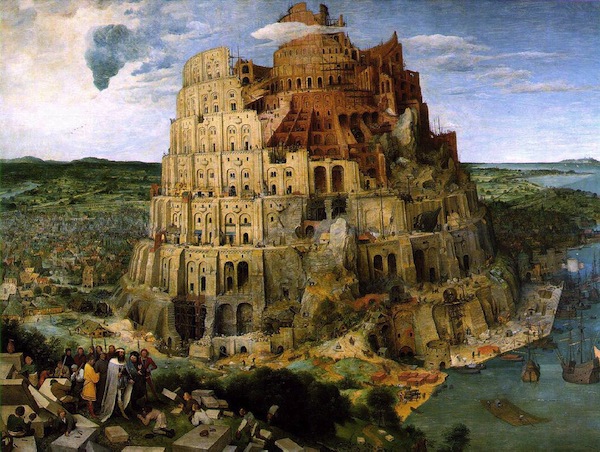

Today’s big news is an inherently global story — 115 cardinals from 67 different countries will gather in Rome to begin the process of choosing the next pope. With 1.2 billion Roman Catholics living in the world, interest in tracking their progress will be avid and widespread.
Wouldn’t it be great, one might wonder, if all all of those interested individuals had access to the same news sources? If an Italian newspaper publishes a particularly insightful profile of a cardinal they think might be a likely choice, shouldn’t all Catholics be able to read it, regardless of what language they speak?
Making global news both readable and sharable regardless of where it was written in has been Brian McConnell’s goal for more than ten years. He’s the founder of Der Mundo, a service that seeks to remove language barriers when it comes to discovering new content online by creating links that will automatically translate a page into the reader’s preferred language. Read an article in Brazil’s Folha de São Paulo and share it via Der Mundo on Twitter — your reader in Milan, clicking through, will see it translated from Portugese into Italian, while your cousin in Dubrovnik will see it in Croatian.

At first glance, what Der Mundo offers doesn’t seem to be too different from Google’s automatic translation feature on Google Chrome. But McConnell says the real power of Der Mundo is actually in its role as a curator. “If you don’t know a page or article exists in another language, you won’t find it,” McConnell wrote in an email.
As a first stab at solving this problem, Der Mundo is operating Habemus Papam, a Facebook page related to the conclave that links to automatically translated stories as they develop in Rome. “All someone needs to do is follow the link,” says McConnell, “It’ll work whether they are using Internet Explorer on an old PC, or Safari on an iPhone.” In the future, McConnell hopes to create a central site where all links submitted to Der Mundo are aggregated and made searchable by keywords, “so that if you search for arte, you’ll find art related posts.”
(Habemas Papam is, of course, “We have a pope” in Latin — a much earlier lingua franca for the world’s Catholics. In more contemporary times, Benedict XVI had to tweet in nine languages, including Latin, to try to reach his multilingual flock.)
Although the majority of pages translated into English do use Google Translate, Der Mundo incorporates multiple services to improve accuracy. In addition to Google Translate and Microsoft Translator, Der Mundo uses open source software called Apertium for translating between closely related Romance languages, which requires a little more nuance.
But as most 21st century humans know, no computer program has yet mastered the subtle art of translation. An El País headline from yesterday translated by Apertium: “Cardinals debate profile of the new papa before cónclave.“ And another, from the Sunday edition of Italy’s Corriere della Sera using Google: “Hope you choose an Italian pope 35 years after Luciani.”
For this reason, McConnell also plans to incorporate collaborative translation using a wiki page that has a base machine translation that bilingual readers can edit and adjust. The wiki is emerging gradually as it undergoes thorough testing, but would establish an easy way to get reliable translations quickly.
Der Mundo’s traffic was small at launch — around a hundred or so test users from between 10 and 20 countries, and just six likes on Facebook for Habemus Papem. But it’s the idea of taking a global event and trying to make it language neutral that’t interesting more than whatever audience this specific instantiation might find. McConnell is hopeful that the service will take off as people share the links on Twitter and Facebook while for a new pope.
@cardinalnapier We’re using dermundo.com to share translated links to news and commentary about the papal election
— Brian McConnell (@brianmsf) March 9, 2013
Down the road, he hopes that niche experts — like the Dutch cycling press or Brazilian music coverage — might rely on Der Mundo to reach an international audience. (The British soccer investigative reporter Andrew Jennings has spoken about the need for a similar cross-language exchange of journalism around corruption in FIFA. If there’s a beat that rivals the papacy for its pan-national nature, it’s probably international soccer.) But for now, if you want to find out what your friends in France or relatives in Russia are reading about le pape or папа римский, check out Habemus Papam on Facebook.
The Tower of Babel (1563) by Bruegel.